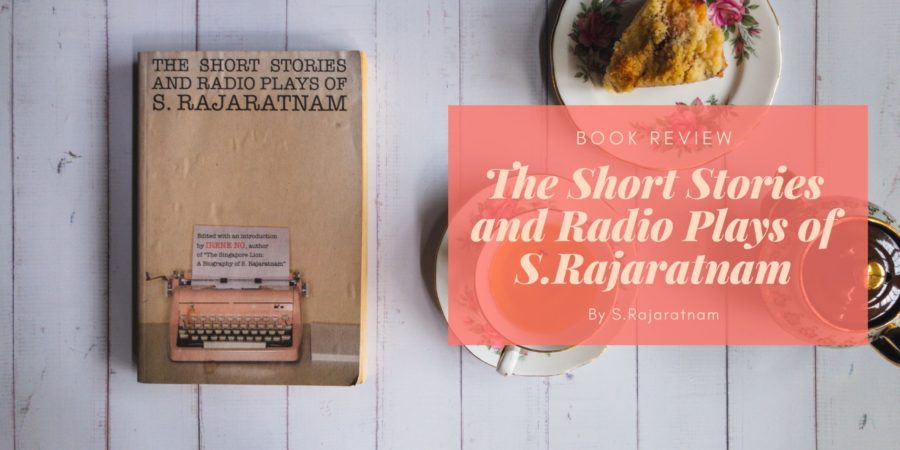A friend gave me a copy of this book of short stories and radio plays by one of the founding fathers of modern Singapore, S. Rajaratnam and honestly I am shocked that I never knew we had such a literary talent in Singapore! I knew of Rajaratnam as one of the key members of our first-generation of political leaders, and the person who drafted the final version of our pledge, but I did not know that he wrote stories and plays.
This collection contains seven of Rajaratnam’s short stories, including one called The Tiger which has been translated into French. Honestly, I loved all these stories – the writing is vivid, the characters are arresting, and the stories are interesting. And after reading Corridors (which didn’t have a point) and Exhalation (where the point was all too obvious), I found that Rajaratnam’s stories straddled the sweet spot where if you thought about it, the story had lots of meaning but the point wasn’t so painfully obvious that you noticed it while reading.
As for the radio plays, which were staged in 1957, before Singapore gained independence, I have to admit that I approached them with some trepidation. Plays aren’t my forte and I didn’t have a very good experience watching one recently. But I was blown away by this one. To be fair, there isn’t much in terms of character development in these plays, as the six plays (or six part of one larger play) are all arguing for a Malaysian Malaya (this being before Singapore became independent) and so there are no characters, just empty names like “optimist”, “pessimist” and “Anymalayan”.
Because of this, these plays read like an easily understood but still very erudite argument for a multi-cultural, multi-religious nation. I felt like I understood so much more about our why Singapore was/is run the way it is. And Rajaratnam was not afraid to tackle some touchy subjects (for example, how important is race when building a multi-racial nation?), which made this for extremely interesting reading. Rajaratnam manages to pull quotes from all sorts of sources to argue, very persuasively in my opinion, that the idea of a multi-racial Malaya is not new and that it can succeed. Some quotes:
In a play debating whether it is race that brings a nation together: “People come together, stick together, work together because they have common cultural and political sentiments.”
The dangers of race politics: “We may find the most dangerous enemies of the Malayan nation are not the ignorant masses but the educated so-called leaders. These are politicians who deliberately exploit racial and religious prejudices to further their own ambitions.”
“Your communalist on the other hand was not interested in the problem of poverty as such. He was anxious only to exploit the poverty of the people to get more followers, more votes. He wants to be a leader. And one way of getting people to follow you is to rouse their anger, their fear of the enemy. And so you must give them an enemy.”
On whether cultures are developed in a vacuum: “Of course all national cultures and civilisations are the result of plagiarism, surreptitious borrowing and quite shameless begging and stealing. As a historian, I must wholly approve. Indeed the nation that does not copy from other cultures will sink back into the jungle from which it emerged.”
To people who think that their vote doesn’t count: “If democracy is not efficient or if the men we put in the legislature are not the best types, it’s the fault of the people who voted for them.”
Overall, this is a fantastic collection and I highly recommend it, especially to fellow Singaporeans who are interested in exploring some of the earliest modern Singlit.

I had never heard of this author before!
In Singapore, he’s mostly known for being a politician! So I was very surprised to see that he had written so much!
[…] stories written by the first generation of Singapore politicians. I previously wrote about reading S. Rajaratnam’s short stories and this time, I managed to read a collection of ghost stories by Othman Wok, Singapore’s […]